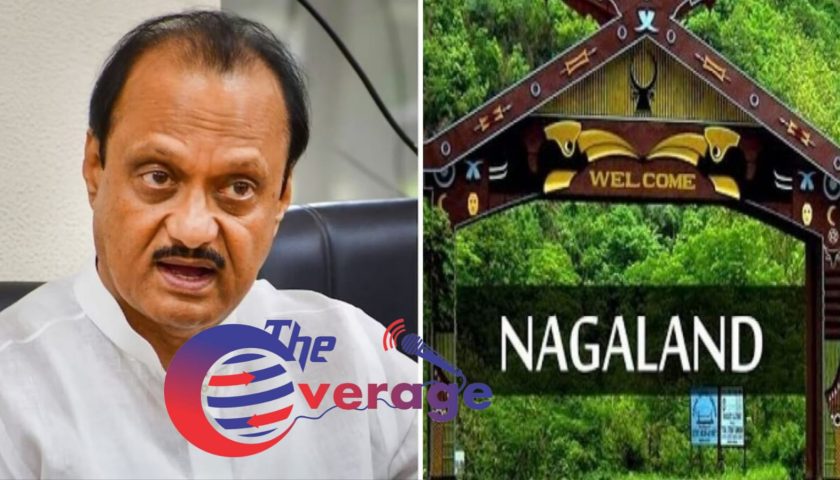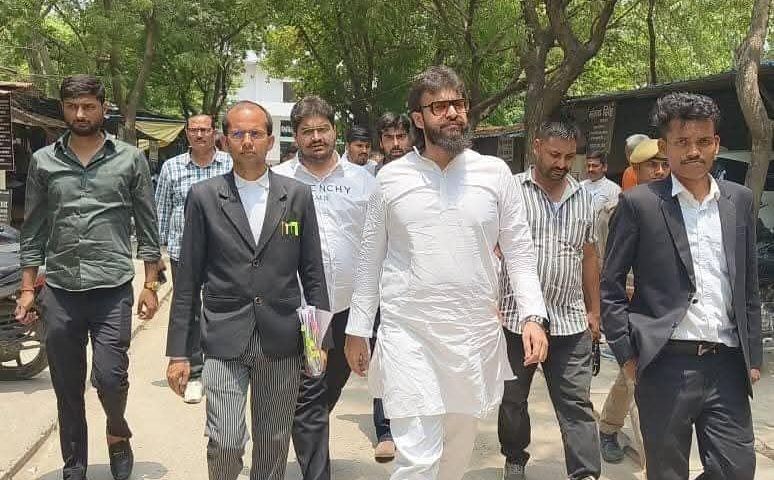JMI organises panel discussion on ‘Understanding Gandhi and Gender’
New delhi:Sarojini Naidu Centre for Women Studies (SNCWS), Jamia Millia Islamia (JMI) organised a panel discussion in association with National Gandhi Museum, New Delhi titled “Understanding Gandhi and Gender” on 19th October 2022 in the Mir Taqi MirBuilding of the university. The program was attended by about 100 participants including bright scholars & academia enthusiasts from across the myriad departments & centres.
The Expert panel consisted of Smt. Tara Gandhi Bhattacharjee, Chairperson of the National Gandhi Museum; Dr Ranjit Singh who is the former Joint Secretary of National Human Rights Commission of India; Dr. Suman Khanna Aggarwal, a former academician who is the president of the Gandhian NGO – Shanti Sahyog; Shri. A. Annamalai, Director of the National Gandhi Museum, New Delhi and Prof. Bulbul Dhar James, Hony. Director, SNCWS, JMI who moderated the discussion.
Prof. Bulbul Dhar James has talked about value- based, and spiritually awakened attitude, with respect of truth and non-violence, peace and harmony. She focused on gender equity more than gender equality. She encourages women to take the path of Satyagraha in a technical approach.
Prof. Ibraheem DSW, JMI, officiated on behalf of the Vice Chancellor and took the responsibility of welcoming the panelists and the esteemed audience. He emphasizes that “Gandhi’s socio-political philosophy is feminist but different”.
Smt. Tara Gandhi Bhattacharjee started with a heartfelt appreciation of Jamia and Urdu language, by saying “Jamia is “Pak” place for me” and shared a beautiful memory with Dr. Ansari. She talked about women’s importance, especially that of mothers by saying – “Auraton ki shakti mein purush ki waqalat”. Women and children need to be the tool of literacy for future generations. She shared the testimonials and memories of Gandhi and beautifully ended by saying “You all are PARIVAAR for me so I came here, Gandhi is within you all”.
Shri. Annamalai presented a well- documented exhibition of rare pictures throughout Gandhi’s life. He emphasized on the book “Bapu- My Mother” and shared how many women confided in Gandhi throughout the Satyagraha movement. He discussed the importance of women leaders like Sarojini Naidu, Ram Bai Kamdas who raised the national flag amongst thousands of people.
Dr. Suman Khanna Aggarwal, who actively works in the grassroots of Tughlaqabad, South Delhi talked at lengths about Feminism by mentioning how ‘gender is a social construction’. She says “Feminism is not in who is in the kitchen (man or woman), it’s on respecting the work inside the kitchen.” She elaborated the idea of ‘nurturing and caring” in a broad manner. She also mentioned that it’s important to understand the spirituality of Gandhi. Additionally, Dr Suman talked about how Gandhi’s aim was “I want to reduce myself to a zero” and give up on materialistic desires. She ends up saying that “I am a struggling Gandhian.”
Dr Ranjit Singh started with calling “Gandhi an institution” and says that “Gender is a characteristic of a person” Dr. Singh did a exclusion and elaborate discussion on the Gandhian perspective of the social, economic and stigmatic issues on the basis of true stories, like- bonded labour, manual scavenger, climate change, child marriage, and sustainable development. He mentioned that the ‘Gender Lens’ should be included in development programmes and talked about Gender Budgeting. He talked on how the role of NGOs, seminar, and academia are integral. Lastly, he quotes Gandhi that “In the world, there’s enough for everyone’s needs, but not for everyone’s greed”.
The students volunteers were called upon to present the book “Jamia aur Gandhi” by A. A. Sahil that had been released by the JMI VC earlier to all the esteemed panelists.
In the Q&A section of the discussion, Prof. Dhar initiated a debate around the themes and the need to have Conversations like this Panel Discussion. The program ended with a vote of thanks by. Dr. Tarannum Siddiqui, Research Associate, SNCWS, JMI.




